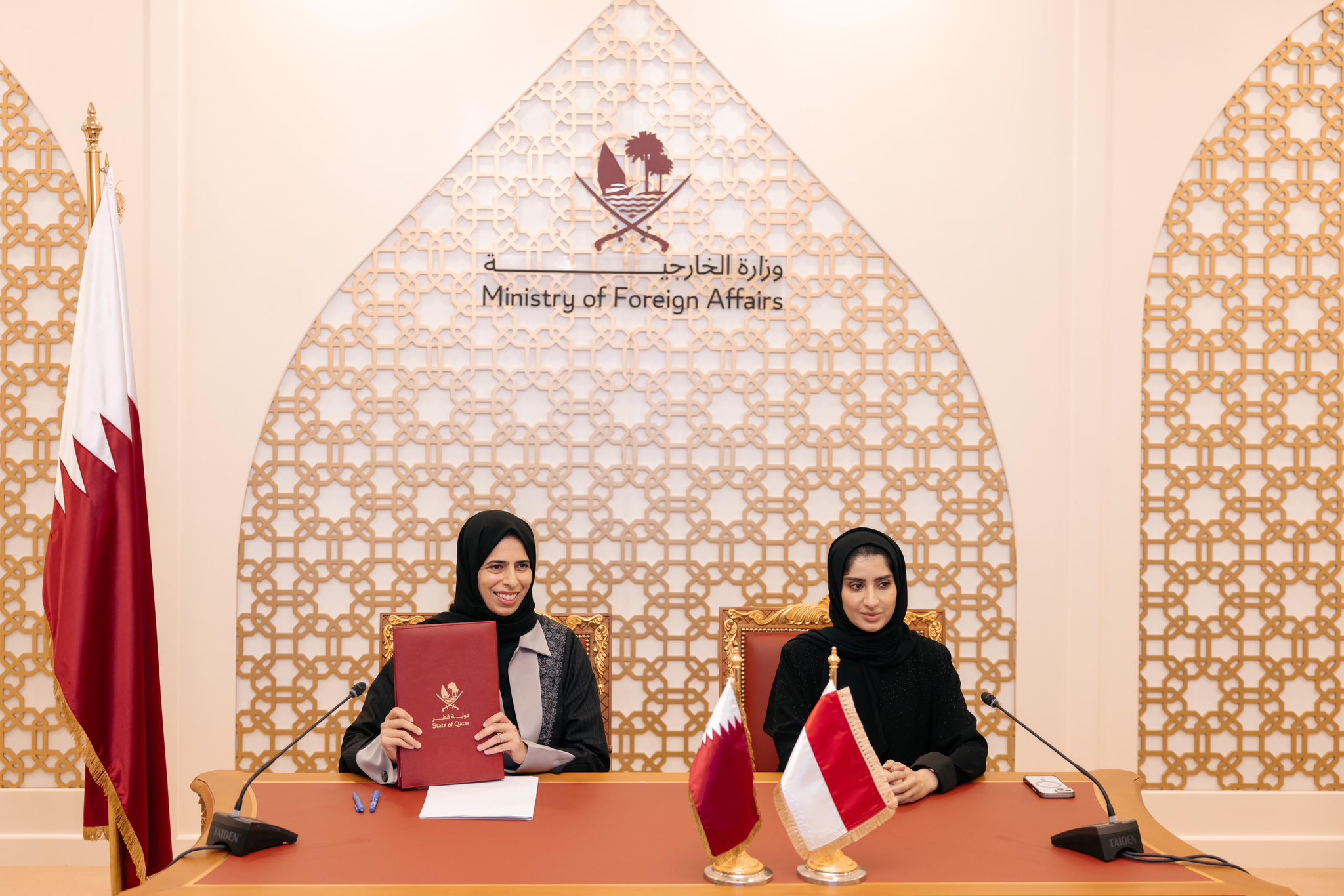The scholarship programme is part of wider joint efforts between Qatar and Indonesia to support Afghans through various projects, especially ones in the field of education and development.
Qatar and Indonesia are providing scholarships to students from Afghanistan to pursue their higher education in the latter under a new memorandum of understanding signed between both countries.
The signing took place virtually on Sunday between Qatar’s Minister of State for International Cooperation, Lolwah Al-Khater and Indonesia’s Foreign Minister, Retno Lestari Priansari Marsudi.
“The MoU aims to establish a cooperation framework to build human capacities of the Afghan people by providing scholarships to study in the Republic of Indonesia,” the Qatari foreign ministry said in a statement on the signing.
Commenting on the latest MoU, Al-Khater said it would “help build human capacities of the Afghan people” while vowing to continue to support the country’s population.
“Qatar will continue to provide humanitarian and development assistance to the Afghan people, in partnership with Indonesia and other sisterly and friendly countries in the fields of health, food security and capacity building,” Al-Khater said, as cited by Doha’s foreign ministry.
The scholarship programme is part of wider joint efforts between Qatar and Indonesia to support Afghans through various projects, especially ones in the field of education and development.
Such initiatives come as Afghanistan faces a dire humanitarian crisis following decades of war and drought.
In 2022, Qatar and Indonesia signed a letter of intent to provide humanitarian and development assistance to the Afghan population on the sidelines of 20th edition of the Doha Forum.
Last month, Qatar also pledged $75m to support Afghanistan while empowering Afghan women through numerous initiatives, including scholarships and training programmes in key sectors such as healthcare.
Qatar played a pivotal role in light of the Taliban takeover of Kabul in 2021 by evacuating more than 80,000 Afghans and foreigners.
The Gulf state also hosted the all-girls robotics team, known as the Afghan Dreamers, as well as the American University of Afghanistan (AUAF).
The Taliban’s takeover of Kabul marked the beginning of the introduction of restrictive policies on women and girls’ education and right to work.
The policies were implemented despite the Taliban’s promise of a more moderate rule in comparison to their previous one, which lasted between 1996 until the beginning of the U.S. led invasion in 2001.
In March 2022, the Taliban banned girls from going to school on the day the institutions reopened. Qatar had expressed its “great concern and disappointment” at the decision and continued to advocate for the rights of Afghan women and girls.







